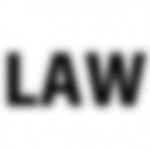-
Recent Posts
Recent Comments
- Anonymous on Journey of Blogging Starts
Archives
Categories
Meta
Jul
31
Right at this moment we are living in the era of digital technology, or more specifically we live in the age where we have the abundance to access information. How do we do this? The internet of course. The history of internet begins in the 1950 where the development for digital computer began; it took many years until it was introduced to the public; however that’s another story for another time. From my own experience, internet first enters my life when I was around 8/9 years old. Back then internet was useful to find information that I could not find in library since my home country is not famous with its library. But that’s what it is use previously isn’t it, it is not until the emergence of social networking that we use internet in different way other than researching. I remember back in the past when the first surface, almost all my friends at school immediately used it and if you are not part of it you are most likely be alienated. Then not long Facebook appears then Youtube then Twitter then Flickr then Vimeo and so many more other social media websites pops out (this are just some that comes to mind).
(Chat Buble by Kathleen Donovan, available under creative commons attributions non-commercial 2.0 generic)
No longer we see and use the internet the same way, no longer we use it as just for researching purposes but not its sole purposes is to connect people, to allow them to share information, picture, video, music, and other things freely and abundantly. Now because of the abundance of information swimming in the internet we can no longer use it as it is, instead we have to select, choose, and make sure that the information we acquired is legit and true. I guess in some way this coincides with the week 3 reading by Adrian Miles about Network Literate. He explains that network literacy or being network literate is not the same as being computer literate, meaning it is not just knowing about how to operate computer and internet it is deeper than that. This is what he says, “able to participate as a peer within the emerging knowledge networks that are now the product of the Internet, and to have as ‘deep’ an understanding of the logics or protocols of these networks as we do of print.” But though we have all that information in front of our eyes, it is not as free as we thought.
In the workshop, we discussed the reading for week 2 which are topics surrounding creative commons, copyright and some other and laws regarding the use of a content in the internet. The discussion has made me realized that the freedom of sharing is not really free at all. Personally I didn’t give this much of a thought until I have to use a blog. When using a picture, or video, or songs I have to be careful and have to give proper credits if not I’ll be in trouble. I understand the whole idea of creative commons and copyright and such is to protect other people work and to stop people from misusing it, but at the same time I feel that these law is very confusing and ‘blurry’, if that’s the appropriate term for being unclear.
But I guess then again nothing is ever free in the world, there is always a catch. Just as Milton Friedman say, “There is no such thing as free lunch.”
-
Recently Written

